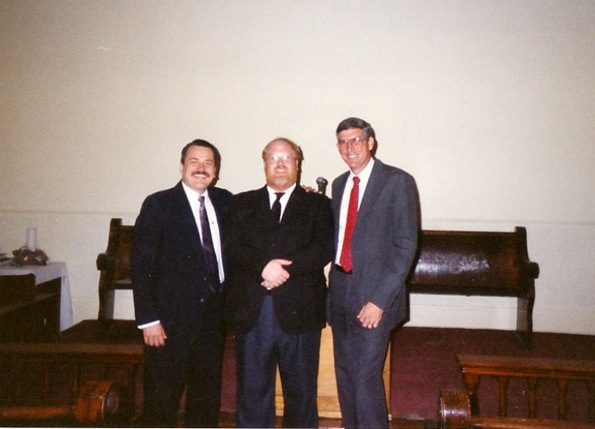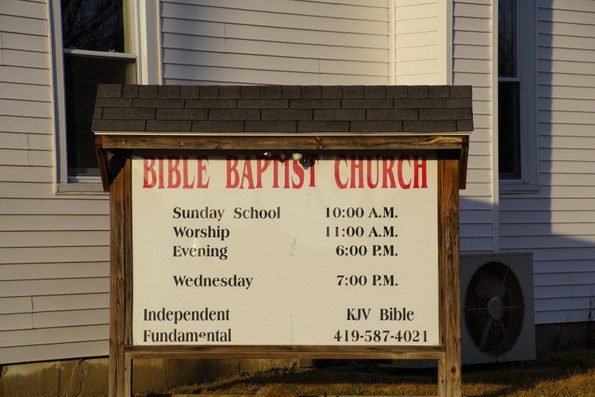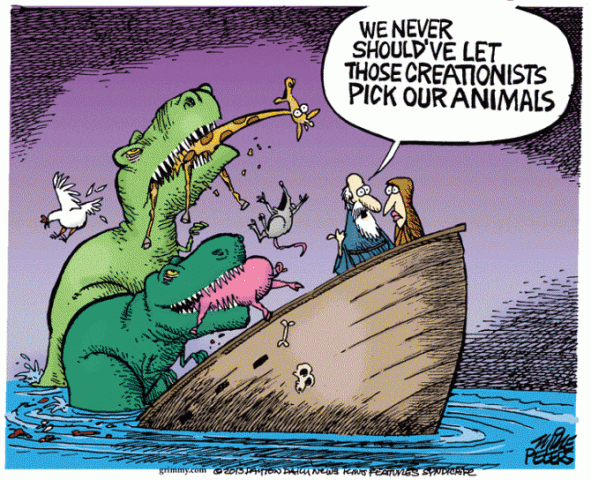
Several years ago, I watched the movie Dark Places. Based on Gillian Flynn’s novel with the same name, Dark Places tells the story of a girl who survived the murder of her mother and sisters. After the killings, the murderer scrawled a message in blood on the bedroom wall. The message said: YOUR GOD IS NOT HERE
Your God is not here . . . five little words, yet they succinctly summarize one of the reasons many people walk away from Evangelical Christianity. Evangelicals believe that God hears and answers prayers, and is intimately involved with the day-to-day machinations of life. This God is all-knowing, all-seeing, and all-powerful. For Evangelicals, they “see” God everywhere, even going so far as to say that God lives inside of them. He walks with me, and he talks with me, and he tells me I am his own, Evangelicals sing, rarely considering how often in their lives God is nowhere to be found.
Evangelicals are taught that God is everywhere, yet it seems — oh, so often — that the everywhere-God is AWOL. In 1 Kings 18, we find the story of Elijah and the prophets of Baal. Elijah challenged the prophets to an Old Testament cook-off. Verses 20-24 state:
So Ahab sent unto all the children of Israel, and gathered the prophets together unto mount Carmel. And Elijah came unto all the people, and said, How long halt ye between two opinions? if the Lord be God, follow him: but if Baal, then follow him. And the people answered him not a word. Then said Elijah unto the people, I, even I only, remain a prophet of the Lord; but Baal’s prophets are four hundred and fifty men. Let them therefore give us two bullocks; and let them choose one bullock for themselves, and cut it in pieces, and lay it on wood, and put no fire under: and I will dress the other bullock, and lay it on wood, and put no fire under: And call ye on the name of your gods, and I will call on the name of the Lord: and the God that answereth by fire, let him be God.
The prophets of Baal went first. As expected, their God was silent and no fire fell from Heaven. Then it was Elijah’s turn, and sure enough, God heard the prophet’s prayer and sent fire to burn up the sacrifice. Not only did God burn up Elijah’s ground chuck offering, but he also totally consumed the stone altar (imagine how hot the fire must have been to melt rock). Afterward, Elijah had the prophets of Baal restrained and taken to a nearby brook so he could murder them. All told, Elijah slaughtered 450 men.
I want to focus on one specific element of this story: Elijah’s mockery of the prophets of Baal. As these prophets called out to their God, Elijah began to mock them:
And it came to pass at noon, that Elijah mocked them, and said, Cry aloud: for he is a god; either he is talking, or he is pursuing, or he is in a journey, or peradventure he sleepeth, and must be awaked.
The Living Bible puts it this way:
“You’ll have to shout louder than that,” he scoffed, “to catch the attention of your god! Perhaps he is talking to someone, or is out sitting on the toilet, or maybe he is away on a trip, or is asleep and needs to be wakened!”
Every time I read these words I think about the Evangelical God, a deity who is supposedly on the job 24/7. If this God is so intimately involved with his creation, why does it seem that he is nowhere to be found? This God is supposedly the Great Physician, yet Christians and atheists alike suffer and die. Where, oh where, is the God who heals? This God supposedly controls the weather, yet tornadoes, hurricanes, tsunamis, floods, avalanches, and mudslides maim and kill countless people, leaving those who survive without homes, food, and potable water. This God supposedly causes plants to grow, yet countless children will starve due to droughts and crop failures. This God is supposedly the God of Peace, yet hundreds of thousands of innocent men, women, and children are maimed and slaughtered in wars and terrorist attacks. This God is supposedly the Giver of Life, yet everywhere people look they see death — both human and animal.
Perhaps it is the Evangelical God that is — to quote the Living Bible — “talking to someone, or is out sitting on the toilet, or maybe he is away on a trip, or is asleep and needs to be wakened!” Taking a big-picture view of life leads many of us to conclude that either the Evangelical God is a heartless, indifferent son of a bitch or he doesn’t exist. For atheists such as myself, our honest, rational observations make one thing clear: there is no God. Perhaps — throwing a bone to deists and universalists — there is a hand-off God, but is he worthy of worship? This God created the universe, yet he chooses, in the midst of our suffering, to do nothing. What good is such a God as this? Warm “feelings” will not suffice when there is so much pain, suffering, and death.
Imagine how different the world would be if the Evangelical God fed the hungry, gave water to thirsty, healed the sick, brought an end to violence and war, and made sure everyone had a roof over their head, clothes on their back, shoes in their feet, and an iPhone (the Devil uses Android) in their pockets. Imagine if this God tore the pages of the book of Revelation from the Bible and said, my perfect, eternal kingdom is now!
Christians have been promising for centuries that someday their God will make all things new. Evangelicals warn sinners that the second coming of Christ is nigh, after which God will make a new Heaven and a new Earth. In Revelation 21:3-5 we find these words:
I heard a loud shout from the throne saying, “Look, the home of God is now among men, and he will live with them and they will be his people; yes, God himself will be among them. He will wipe away all tears from their eyes, and there shall be no more death, nor sorrow, nor crying, nor pain. All of that has gone forever.” And the one sitting on the throne said, “See, I am making all things new!”
Yet, despite the promises of better days ahead, the world remains just as it always has been, an admixture of love, joy, kindness, hatred, heartache, and loss. I ask, where is God?
I think the murderer was right when he scrawled on the bedroom wall, YOUR GOD IS NOT HERE. Surely, the cold reality and honesty of atheism is preferred to begging and pleading with a God who never answers. I spend each and every day of my life battling chronic pain and illness. Gastroparesis, fibromyalgia, and osteoarthritis dominate every waking moment. My health problems started fifteen years before I walked away from Christianity. Countless prayers were uttered on my behalf. I pleaded with God, Help me, Lord. Heal my broken body. Take away my pain. God uttered not a word, nor did he lift a finger to help. As a pastor, I prayed for numerous dying Christians. I asked the churches I pastored to pray for the sick and the dying. Yet, despite our earnest petitions, all those we prayed for died.
The absence of God from the human narrative of life is but one of the reasons I no longer believe in the existence of God. I think Jimmy Stewart summed up my view best with his prayer on the movie Shenandoah:
There is no God that is coming to deliver us from pain, suffering, and loss. We are on our own, so it is up to us to ease the suffering of humans and animals alike. Knowing that death always wins shouldn’t keep us from attempting to alleviate the misfortunes of others. We shouldn’t need promises of homes in Heaven to motivate us to help others.
Bruce Gerencser, 66, lives in rural Northwest Ohio with his wife of 45 years. He and his wife have six grown children and thirteen grandchildren. Bruce pastored Evangelical churches for twenty-five years in Ohio, Texas, and Michigan. Bruce left the ministry in 2005, and in 2008 he left Christianity. Bruce is now a humanist and an atheist.
Connect with me on social media:
Your comments are welcome and appreciated. All first-time comments are moderated. Please read the commenting rules before commenting.
You can email Bruce via the Contact Form.








